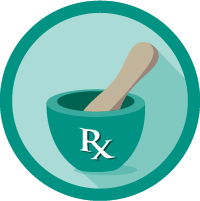If you’ve been hearing about more people than usual catching a stomach bug, it’s likely due to norovirus. Often called the “stomach flu” (though it’s unrelated to influenza), norovirus is a highly contagious virus that causes sudden onset vomiting and diarrhea. Outbreaks tend to increase during colder months, so it’s important to know how to protect yourself and your loved ones from this uncomfortable illness—and what to do if you catch it.
What is Norovirus?
Norovirus is a highly contagious virus that can spread through contaminated food, water, surfaces, and even close contact with an infected person. Unlike some viruses that primarily affect the respiratory system, norovirus targets the digestive system. Its symptoms come on quickly and can last anywhere from 1 to 3 days.
Common Symptoms of Norovirus:
- Nausea
- Vomiting
- Diarrhea
- Stomach cramps
- Low-grade fever
- Headache
- Muscle aches
While norovirus is usually not dangerous for healthy individuals, it can cause severe dehydration, especially in young children, older adults, and people with compromised immune systems.
How Norovirus Spreads
One of the reasons norovirus spreads so quickly is its ability to survive on surfaces for long periods. It only takes a tiny amount of the virus to make someone sick, and it can be passed through:
- Consuming contaminated food or beverages
- Touching surfaces contaminated with the virus and then touching your mouth
- Direct contact with someone who is infected (such as sharing utensils or caring for an infected person)
How to Protect Yourself from Norovirus
Preventing norovirus requires a combination of good hygiene and smart practices. Here’s what you can do:
1. Wash Your Hands Frequently
Proper handwashing is your best defense against norovirus. Use soap and warm water, and scrub for at least 20 seconds, especially:
- After using the restroom
- Before eating or preparing food
- After caring for someone who is sick
2. Clean and Disinfect Surfaces
Norovirus can survive on surfaces for days. Use a disinfectant with bleach to clean high-touch surfaces like doorknobs, countertops, and light switches.
3. Wash Fruits and Vegetables Thoroughly
Since norovirus can be transmitted through food, make sure to wash all produce thoroughly before eating.
4. Stay Home if You’re Sick
If you’re experiencing symptoms, it’s important to stay home to prevent spreading the virus to others. Norovirus is most contagious while symptoms are present and for a few days after recovery.
5. Handle Food Safely
People who have recently recovered from norovirus should avoid preparing food for others for at least two days after symptoms disappear.
How to Get Through Norovirus
If you or someone in your household gets norovirus, the best course of action is to focus on managing symptoms and preventing dehydration.
1. Stay Hydrated
Norovirus causes significant fluid loss through vomiting and diarrhea, so staying hydrated is critical. Sip on:
- Water
- Oral rehydration solutions (such as Pedialyte)
- Broth or clear soups
Avoid sugary drinks or caffeinated beverages, as they can worsen dehydration.
2. Rest
Your body needs time and energy to fight off the virus. Rest as much as possible to speed up recovery.
3. Eat Bland Foods Slowly
Once you can keep fluids down, start with bland, easy-to-digest foods like:
- Bananas
- Rice
- Applesauce
- Toast
Avoid dairy, greasy foods, and anything too heavy until you feel fully recovered.
4. Avoid Medications That Slow Digestion
Anti-diarrheal medications can prolong the presence of the virus in your system, so it’s best to avoid them unless advised by your doctor.
When to Seek Medical Attention
In most cases, norovirus can be managed at home, but you should seek medical help if:
- Symptoms last more than 3 days
- You show signs of severe dehydration (dry mouth, dizziness, reduced urination)
- A young child, elderly person, or someone with a weakened immune system becomes infected
Stay Safe and Stay Healthy
We care about your health and want to help you stay protected during norovirus season. We carry a variety of products to help manage symptoms and stay hydrated, including rehydration solutions, hand sanitizers, and disinfectants.
If you have any questions about managing norovirus or staying protected, feel free to speak with one of our friendly pharmacists.
Disclaimer: This blog post is for informational purposes only and is not a substitute for professional medical advice. Always consult a healthcare provider if you have concerns about your health.

